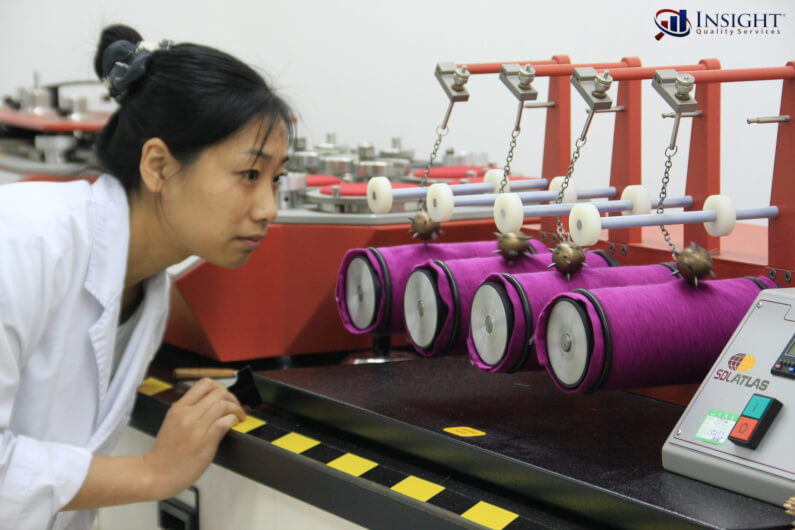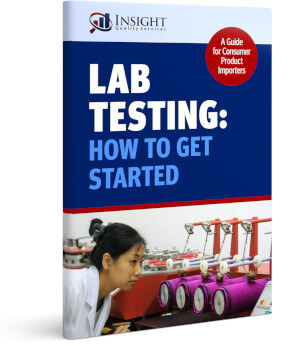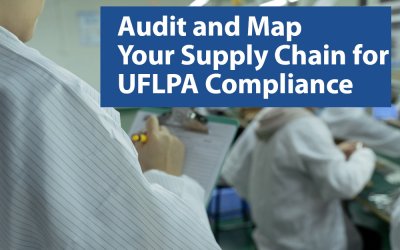We often get emails from frantic Amazon sellers regarding a message they received from the platform about a missing compliance document, like a Children’s Product Certificate. Of course, we’re happy to help in any way we can.
However, if you sell on Amazon or any other platform, you are responsible for knowing about any product safety requirements long before they ever notify you. If your shipment arrives in the US, EU, or elsewhere and is out of compliance with regulations, it could be a massive blow to your business. Hold-ups in customs, confiscation of your products, or huge fines could be the result.
The Chairman of the United States CPSC (Consumer Product Safety Commission) recently made some fascinating comments about their enforcement initiatives and how the agency has been stepping up efforts to catch unsafe products. Here, we’ll discuss those comments and explain how to approach regulatory compliance effectively.
Table of Contents
The CPSC Has Gotten More Vigilant About Online Sellers
 At a recent product safety conference, CPSC Chairman Alexander Hoehn-Saric mentioned, “In the past year, the CPSC has requested the removal of 50,000 products online, many of which were recalled or banned, such as crib bumpers.” He also said the agency “levied $52 million in civil penalties” and “screened approximately 60,000 harmful products at the ports.”
At a recent product safety conference, CPSC Chairman Alexander Hoehn-Saric mentioned, “In the past year, the CPSC has requested the removal of 50,000 products online, many of which were recalled or banned, such as crib bumpers.” He also said the agency “levied $52 million in civil penalties” and “screened approximately 60,000 harmful products at the ports.”
Imagine that you unknowingly violate a product safety law in the US, and your product is one of those removed or identified as harmful at Customs. It’s reasonable to assume that at least some of the products Hoehn-Saric mentioned were imported by people who had no idea they were violating any law. As such, it is vital that you do proper due diligence about the regulations applicable to your products before you put them up for sale.
Before 2021, small sellers could often fly under the radar without proper compliance research and taking the necessary steps. Since then, an increasing number of small shipments have been scrutinized. And ignorance is not an excuse — if you unknowingly import unsafe products, you are at fault, not Amazon. With that in mind, how should you tackle your research?
You Need to Get Familiar With Consumer Product Regulations

Last year, we talked with Larry Whitney, a compliance expert and consultant at Whitney & Whitney, about how to determine which regulations apply to your product. He suggested starting with three key questions: who are the intended users of your product, what environment will they use it in, and what countries/jurisdictions are you selling in? These answers serve as your starting point.
From there, investigate the regulatory requirements for your product type in those jurisdictions. In the US, free tools like the Regulatory Robot can help by providing a starting point. Keep in mind that every state in the US has its own regulations. For example, there are 32 states that have unique law label requirements for stuffed goods like pillows.
When we spoke with Paul Chen of P.C. Squared Consultants, he suggested that Amazon sellers understand that regulations constantly evolve. In 2022, New York introduced a law banning PFAS (a widely used chemical) from food packaging. This change illustrates that you should not only research before selling but also keep on top of any regulatory changes that affect your product over time.
You can spend the time doing this online research yourself — just be sure you are thorough. Otherwise, you can hire a consultant like the ones we partner with. Let us know if you would like an introduction to one of our consulting partners. Also, understand that testing your products in a laboratory is required or advisable for many product types.
Why Lab Testing is Crucial to Compliance

Simply knowing that specific regulations apply to your product is not enough. It’s also necessary to comply with those regulations, which often means you must conduct tests to ensure you don’t violate them. This involves pulling products from the production line in the country of manufacture and sending them to an independent lab there.
Sometimes, testing is required — for example, a US regulation called CPSIA requires that children’s products be tested for certain harmful chemicals. Other times, no specific testing regimen is required, but importers are responsible for ensuring their products comply, and lab testing is often the best way to do that.
So, how do you get products tested for safety and compliance? It boils down to four steps: 1) determining which tests to conduct, 2) finding an accredited lab, 3) sending in your samples, and 4) reviewing the results.
We’ve compiled a guide to getting started with testing, which we recommend you download — and if you need help with the testing process, let us know. We’ve partnered with various testing labs and can help you manage it.
Ignorance is No Excuse — Take Action!

A lack of knowledge about compliance rules isn’t anyone else’s problem other than your own. Amazon does a pretty good job of providing resources to sellers, but it’s not their responsibility to ensure compliance; it’s yours as the seller. If a container comes into the port and a product is found to be unsafe, the importer of record is responsible.
Prioritizing compliance is not just a regulatory checkbox; it’s the bedrock of consumer safety and a safeguard for your Amazon marketplace reputation. As such, we urge sellers to internalize these insights and take the necessary steps.
If you don’t want to be a part of the CPSC’s product removal, recall, penalty, or confiscation statistics, do your due diligence to research compliance laws. Then, take the necessary steps to ensure compliance, such as lab testing in the country of manufacture. If you’d like help testing your product, contact us or download our free lab testing guide.





0 Comments